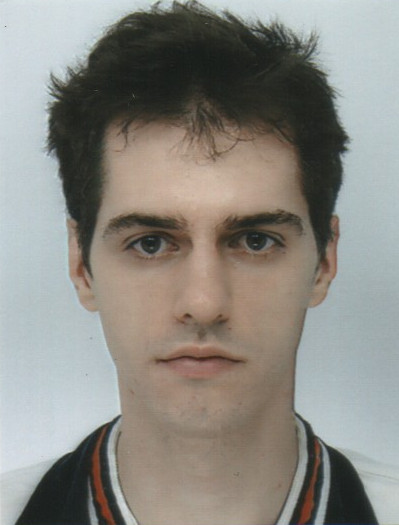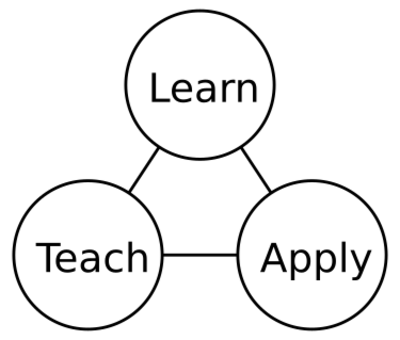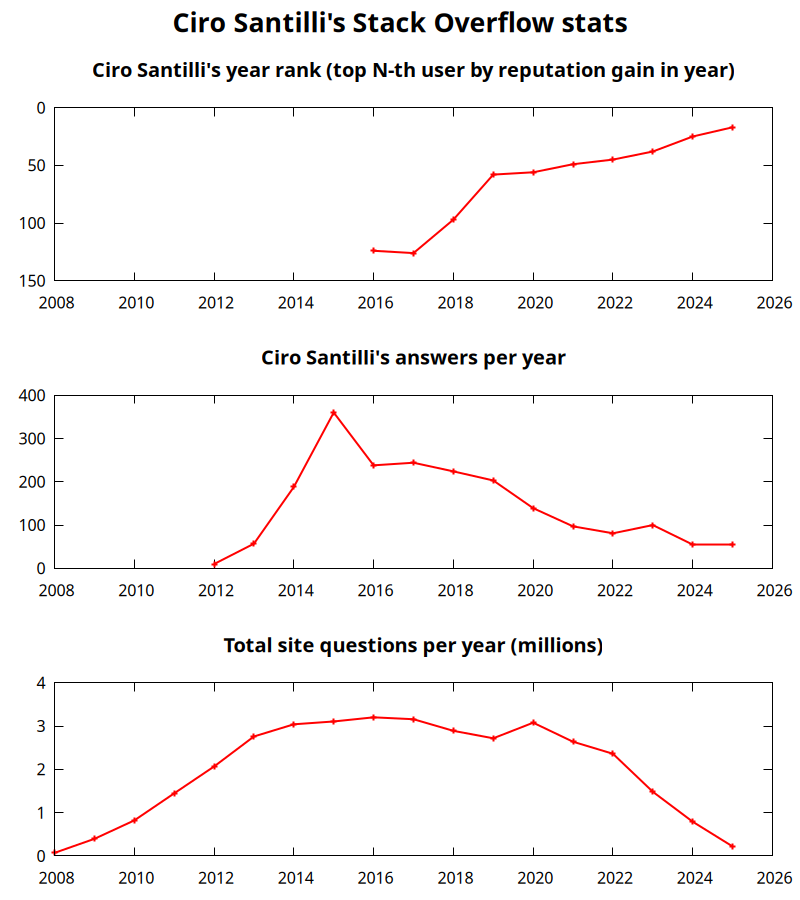Home Updated 2025-12-02
Check out: OurBigBook.com, the best way to publish your scientific knowledge. It's an open source note taking system that can publish from lightweight markup files in your computer both to a multi-user mind melding dynamic website, or as a static website. It's like Wikipedia + GitHub + Stack Overflow + Obsidian mashed up. Source code: github.com/ourbigbook/ourbigbook.
Sponsor me to work on this project. For 400k USD I will quit my job or not get a new job and work on OurBigBook full time for a second year to try and kickstart The Higher Education Revolution. Status: ~44k / 400k USD. At 4M USD I retire/tenure and work on open STEM forever. How to donate: Section "Sponsor Ciro Santilli's work on OurBigBook.com".
I first quit my job 1st June 2024 to work on the project for 1 year after I reached my initial 100k goal mostly via a 1000 Monero donation. For a second follow up year, I increased my requirement to 400k USD to give me more peace of mind as I'm destroying my career in the process. A second year greatly improve chances of success: on year one I improved my tech, on year two I want to come guns blazing to solve courses and get users.
Mission: to live in a world where you can learn university-level mathematics, physics, chemistry, biology and engineering from perfect free open source books that anyone can write to get famous. More rationale: Section "OurBigBook.com"
Explaining things is my superpower, e.g. I was top user #39 on Stack Overflow in 2023[ref][ref] and I have a few 1k+ star educational GitHub repositories[ref][ref][ref][ref]. Now I want to bring that level of awesomeness to masters level Mathematics and Physics. But I can't do it alone! So I created OurBigBook.com to allow everyone to work together towards the perfect book of everything.
My life's goal is to bring hardcore university-level STEM open educational content to all ages. Sponsor me at github.com/sponsors/cirosantilli starting from 1$/month so I can work full time on it. Further information: Section "Sponsor Ciro Santilli's work on OurBigBook.com". Achieving what I call "free gifted education" is my Nirvana.
This website is written in OurBigBook Markup, and it is published on both cirosantilli.com (static website) and outbigbook.om/cirosantilli (multi-user OurBigBook Web instance). Its source code is located at: github.com/cirosantilli/cirosantilli.github.io and also at
cirosantilli.com/_dir and it is licensed under CC BY-SA 4.0 unless otherwise noted.To contact Ciro, see: Section "How to contact Ciro Santilli". He likes to talk with random people of the Internet.
GitHub | Stack Overflow | LinkedIn | YouTube | Twitter | Wikipedia | Zhihu 知乎 | Weibo 微博 | Other accounts
Besides that, I'm also a freedom of speech slacktivist and recreational cyclist. I like Chinese traditional music and classic Brazilian pop. Opinions are my own, but they could be yours too. Tax the rich.
Let's create an educational system with:
- no distinction between university and high school, students just go as fast as they can to what they really want without stupid university entry exams
- fully open source learning material
- on-demand examinations that anyone can easily take without prerequisites
- granular entry selection only for space in specific laboratories or participation in specific novel research projects
I offer:
- online private tutoring for:
- any STEM university course
- passionate younger STEM students (any age) who want to learn university level material and beyond. Can your kid be the next Fields Medalist or Nobel Prize winner? I'm here to help, especially if you are filthy rich! I focus moving students forward as fast as they want on and on producing useful novel tutorials and results
Let your child be my Emile, and me be their Adolfo Amidei, and let's see how far they can go! I will help take your child:and achieve their ambitious STEM goals!- into the best universities
- into the best PhD programs
- educational consulting for institutions looking to improve their STEM courses
- do you know that course or teacher that consistently gets bad reviews every year? I'll work with the teacher to turn the problem around!
- are you looking to create a consistent open educational resources offering to increase your institutions internationally visibility? I can help with that too.
My approach is to:For minors, parents are welcome to join video calls, and all interactions with the student will be recorded and made available to parents.
- propose interesting research projects. The starting point is always deciding the end goal: Section "Backward design"
- learn what is needed to do the project together with the student(s)
- publish any novel results or tutorials/tools produced freely licensed online, and encourage the student to do the same (Section "Let students learn by teaching", digital garden)
I have a proven track of explaining complex concepts in an interesting and useful way. I work for the learner. Teaching statement at: Section "How to teach". Pricing to be discussed. Contact details at: Section "How to contact Ciro Santilli".
I am particularly excited about pointing people to the potential next big things, my top picks these days are:I am also generally interested in:
- quantum computing
- AGI research, in particular AI code generation, automated theorem proving and robotics
- assorted molecular biology technologies
- 20th century physics, notably AMO and condensed matter
- the history of science, and in particular trying to look at seminal papers of a field
Ciro Santilli's amazing Stack Overflow profile
. Ciro contributes almost exclusively by answering question he Googles into out of his own need, and never by refreshing the newest question of big tags for low hanging fruit! More information at: Section "Ciro Santilli's Stack Overflow contributions".Ciro Santilli's Stack Overflow stats
. Further methodology details at: Figure "Ciro Santilli's Stack Overflow stats".The problem with education by Ciro Santilli
. Source. In this video Ciro Santilli exposes his fundamental philosophy regarding why Education is broken. This philosophy was the key motivation behind the failed OurBigBook Project.OurBigBook Web topics demo
. Source. The OurBigBook topic feature allows users to "merge their minds" in a "sort by upvote"-stack overflow-like manner for each subject. This is the killer feature of OurBigBook Web. More information at: docs.ourbigbook.com/ourbigbook-web-topics.OurBigBook dynamic article tree demo
. Source. The OurBigBook dynamic tree feature allows any of your headers to be the toplevel h1 header of a page, while still displaying its descendants. SEO loves this, and it also allows users to always get their content on the correct granularity. More information at: docs.ourbigbook.com/ourbigbook-web-dynamic-article-tree.OurBigBook local editing and publishing demo
. Source. With OurBigBook you can store your content as plaintext files in a Lightweight markup, and then publish that to either OurBigBook.com to get awesome multi-user features, or as a static website where you are in full control. More information at: docs.ourbigbook.com/publish-your-content.Top Down 2D continuous game with Urho3D C++ SDL and Box2D for Reinforcement learning by Ciro Santilli (2018)
Source. More information: Section "Ciro's 2D reinforcement learning games". This is Ciro's underwhelming stab at the fundamental question: Can AGI be trained in simulations?. This project could be taken much further.Water Margin tribute to Chinese dissidents by Ciro Santilli (2022)
Source. Part of Ciro Santilli's campaign for freedom of speech in China, see also: cirosantilli.com/china-dictatorship/water-margin.Lenovo ThinkPad T430 running a BIOS hello world
. This uses Ciro Santilli's project x86 bare metal examples with source code at: github.com/cirosantilli/x86-bare-metal-examplesLinux Kernel Module Cheat presentation
. Source. This project, with source code at: github.com/cirosantilli/linux-kernel-module-cheat, aims to be the perfect emulation setup to study and develop the Linux kernel, kernel modules, QEMU, gem5 as well as x86_64, ARM userland and baremetal assembly and more.My Bitcoin inscription museum by Ciro Santilli
. Source. Introductory video to Section "Cool data embedded in the Bitcoin blockchain". -------------------------------------
| Force of Will 3 U U |
| --------------------------------- |
| | //////////// | |
| | ////() ()\////\ | |
| | ///_\ (--) \///\ | |
| | ) //// \_____///\\ | |
| | ) \ / / / / | |
| | ) / \ | | / _/ | |
| | ) \ ( ( / / / / \ | |
| | / ) ( ) / ( )/( ) \ | |
| | \(_)/(_)/ /UUUU \ \\\/ | | |
| .---------------------------------. |
| Interrupt |
| ,---------------------------------, |
| | You may pay 1 life and remove a | |
| | blue card in your hand from the | |
| | game instead of paying Force of | |
| | Will's casting cost. Effects | |
| | that prevent or redirect damage | |
| | cannot be used to counter this | |
| | loss of life. | |
| | Counter target spell. | |
| `---------------------------------` |
| l
| Illus. Terese Nelsen |
-------------------------------------Code 1.
ASCII art of a Force of Will Magic: The Gathering card inscribed in the Bitcoin blockchain
. Artist unknown, uploaded December 2014. Part of Section "Cool data embedded in the Bitcoin blockchain" where Ciro Santilli maintains a curated list of such interesting inscriptions.
This was a small project done by Ciro for artistic purposes that received some attention due to the incredible hype surrounding cryptocurrencies at the time. Ciro Santilli's views on cryptocurrencies are summarized at: Section "Are cryptocurrencies useful?".
YellowRobot.jpgJPG image fully embedded in the Bitcoin blockchain depicting some kind of cut material art depicting a yellow robot, inscribed on January 29, 2017.
Ciro Santilli found this image and others during his research for Section "Cool data embedded in the Bitcoin blockchain" by searching for image fingerprints on every transaction payload of the blockchain with a script.
The image was uploaded by EMBII, co-creator of the AtomSea & EMBII upload mechanism, which was responsible for a large part of the image inscriptions in the Bitcoin blockchain.
The associated message reads:This is one of Ciro Santilli's favorite AtomSea & EMBII uploads, as it perfectly encapsules the "medium as an art form" approach to blockchain art, where even non-novel works can be recontextualized into something interesting, here depicting an opposition between the ephemeral and the immutable.
Chiharu [EMBII's Japanese wife] and I found this little yellow robot while exploring Chicago. It will be covered by tar or eventually removed but this tribute will remain. N 41.880778 E -87.629210
2010 Wayback Machine archive of starwarsweb.net
. This website was used as one of the CIA 2010 covert communication websites, a covert system the CIA used to communicate with its assets. More details at: Section "CIA 2010 covert communication websites".
Ciro Santilli had some naughty OSINT fun finding some of the websites of this defunct network in 2023 after he heard about the 2022 Reuters report on the matter, which for the first time gave away 7 concrete websites out of a claimed 885 total found. As of November 2023, Ciro had found about 350 of them.
2010 Wayback Machine archive of noticiasmusica.net
. This is another website that was used as one of the CIA 2010 covert communication websites. This website is written in Brazilian Portuguese, and therefore suggests that the CIA had assets in Brazil at the time, and thus was spying on a "fellow democracy".
Although Snowden's revelations made it extremely obvious to the world that the USA spies upon everyone outside of the Five Eyes, including fellow democracies, it is rare to have such a direct a concrete proof of it visible live right on the Wayback Machine. Other targeted democracies include France, Germany, Italy and Spain. More details at: USA spying on its own allies.
This investigative report by Ciro Santilli was featured on the Daily Mail after 404 Media reported on it in 2025.
Diagram of the fundamental theorem on homomorphisms by Ciro Santilli (2020)
Shows the relationship between group homomorphisms and normal subgroups.
Used in the Stack Exchange answer to What is the intuition behind normal subgroups? One of Section "The best articles by Ciro Santilli".
Spacetime diagram illustrating how faster-than-light travel implies time travel by Ciro Santilli (2021)
Used in the Stack Exchange answer to Does faster than light travel imply travelling back in time?. One of Section "The best articles by Ciro Santilli".Average insertion time into heaps, binary search tree and hash maps of the C++ standard library by Ciro Santilli (2015)
Source. Used in the Stack Overflow answer to Heap vs Binary Search Tree (BST). One of Section "The best articles by Ciro Santilli".Birch and Swinnerton-Dyer conjecture in two minutes by Ciro Santilli
. Source. Quick and direct explanation of the statement of the BSD conjecture for people who know basic university mathematics. This is one of the Millennium Prize Problems, and you will get a million dollars if you can solve it! This therefore falls in the Simple to state but hard to prove of Ciro Santilli's the beauty of mathematics aesthetics.Top view of an open Oxford Nanopore MinION
. Source. This is Ciro Santilli's hand on the Wikipedia article: en.wikipedia.org/wiki/Oxford_Nanopore_Technologies. He put it there after working a bit on Section "How to use an Oxford Nanopore MinION to extract DNA from river water and determine which bacteria live in it" :-) And he would love to document more experiments like that one Section "Videos of all key physics experiments", but opportunities are extremely rare.A quick 2D continuous AI game prototype for reinforcement learning written in Matter.js, you can view it on a separate page at cirosantilli.com/_raw/js/matterjs/examples.html#top-down-asdw-fixed-viewport. This is a for-fun-only prototype for Ciro's 2D reinforcement learning games, C++ or maybe Python (for the deep learning ecosystem) seems inevitable for a serious version of such a project. But it is cute how much you can do with a few lines of Matter.js!
HTML snippet:
<iframe src="_raw/js/matterjs/examples.html#top-down-asdw-fixed-viewport" width="1000" height="850"></iframe> OurBigBook.com Desired social impact Updated 2025-07-16
Crush the current grossly inefficient educational system, replace today's students + teachers + researchers with unified "online content creators/consumers".
Gamify them, and pay the best creators so they can work it full time, until some company hires for more them since they are so provenly good.
Help create much greater equal opportunity to talented poor students as described at free gifted education.
Give the students a flexible choice of what to learn, which basically implies that a much large proportion of students get a de-facto gifted education.
In some ways, Ciro wants the website to feel like a video game, where you fluidly interact with headers, comments and their metadata. If game developers can achieve impressively complicated game engines, why can't we achieve a decent amazing elearning website? :-)
Related:
Pop music Updated 2025-07-16
Pop music cannot be good by definition: any art that appeals to the masses (Popular!) has to be a boring watered down version of everything, and therefore boring shit. Just like the movies: high budget movies are shit.
São Remo, the favela next to USP Updated 2025-07-16
While in Brazil, Ciro Santilli used to walk through the outskirts of a small favela to get to university every day, the Favela de São Remo.
See the street view for: R. Catumbi - Vila Butantã Vila Butantã, São Paulo - State of São Paulo, Brazil, e.g. with this link.
To the right, dudes selling drugs on the entry of a small corridor street, presumably to which they could easily escape to in case of need.
The cops could have identified the dealers with binoculars if they actually wanted to!!!
The drug sellers did keep the peace in their business area, and Ciro never got robbed, and would come back from university parties on foot late through the favela.
But Ciro's friends did say that things got much worse after Ciro left, for example a flash kidnapping was reported in 2015.
Wikipedia says that this favela started in the 60s and 70s as settlements of the builders of the University, and that many of the people there still work for the University.
This is consistent with the terribly old buildings Ciro saw when he was at university. They even had the building skills to build their own homes.
The state just has to either legalize those people, or give them houses somewhere else nearby. A world class University is the most important thing a poor country can have, and its image cannot be jeopardized like that.
The existence of that favela, right next to one of the most important universities in Latin America, puts Brazil's surreal social inequality into perspective. Especially considering that before extremely heavy university entry quotas were added, basically all students of the university (or at least of the courses that lead to high paying jobs) had attended private schools, and therefore were not of the poorer classes (see passage about 10 out 500 passage from Section "Free gifted education").
The janitors of the apartment block Ciro lived all lived in the favela. Yes, in poor countries lives are worth nothing, and some poorer people work by watching the entrance of buildings of less poor people 24/7 to guard it from other even more desperate poor people who might want to rob the not so poor inhabitants. They also do janitor jobs like cleaning common areas in parallel.
They were incredibly nice hard-working people, and Ciro spoke often with them. If only given the opportunity, those people could be amazing engineers or scientists obviously. Ciro was also glad to be their friends, and sat down with them quite a few times for several minutes after coming back from University parties, partly because he felt bad about them having to work at that time, but also partly because he just liked them. And they were always up to date on who had come back with a girl to the apartment or not. Ciro imagines that if it had been him, it would have been a perfect bragging opportunity ;)
They had "nothing" but were still happy. This is true wisdom, and a good reminder that all our non-transhumanist technical goals are nothing.
We must destroy social inequality.
Social inequality Updated 2025-07-16
Ciro Santilli is extremely passionate about this issue, partly due to Ciro Santilli's self perceived compassionate personality.
One of Ciro's most direct experiences with social inequality is described at: São Remo, the favela next to USP.
We have to be careful not to make everyone poorer when trying to reduce inequality.
But as things stand as of 2020, increasing taxes on the very richest, and notably wealth tax, and investing it in free gifted education, seems like a safe bet to achieve any meaningful level of equal opportunity and meritocracy.
The ideal university Updated 2025-07-16
This is Ciro Santilli's ideal university system. It is a system that actually lives up to the name "Open University":
- no enrolment, no prerequisites. Exam as a service examination style, likely free to anyone who wants to take them, only to determine:
- who gets to use physical facilities, notably laboratories
- which students do you want to pick as apprentices/workers/PhDs
- no tuition fees: free gifted education
- school must offer free accommodation for students
- force teachers to publish their teaching material with an open license
- how to teach
Related:
- reallyopenuniversity.wordpress.com/what-is-the-rou/
Apparently Leeds based. Focused only on student fees seemingly, not how to solve it with tech/efficiency:
So far as of the early 2020's, the university that comes closest to some but not all of these principles is the University of the People. It's sad that it's such a crappy unknown thing, but it is what it is.
Thiel Fellowship Updated 2025-07-16
Ciro Santilli approves of this one, related: Section "Free gifted education".
The downside of the Thiel Fellowship is that it is realistically impossible for its fellows to do anything in deep tech, only information science startups would be possible, as they would not have the labs, or lab skills required for any deep tech if they drop out before a PhD. Related: Section "The only reason for universities to exist should be the laboratories".
The only solution is the harder process of actually remodelling our very broken educational system.
University entry quotas Updated 2025-07-16
Ciro Santilli is against affirmative action university entry quotas that reserve spaces e.g. for students from discriminated races or poor families. Instead, he believes that affirmative action should take place on earlier stages of education as described at: free gifted education.
Notably, Brazil has implemented a very heavy university entry quota system after Ciro had left university there: www.bbc.co.uk/news/business-23862676
This is of course easy for a white male from a privileged background to say, and infinite debate has already been had on this matter, but here goes again.
First, in defense to the personal attack, Ciro raises the fact that he has dedicated large chunks (all?) of his life to open source software and knowledge in general, which Ciro believes is the only way to actually make the world fairer to poor countries. His money (time) is where his mouth is.
One good argument in favor of the Brazilian quota system, is that the kids who enter university because of quotas do just as well as those who don't.
Ciro has actually believes that this is possible, and offers the following possible explanation: most of pre-university knowledge is useless, and university selection system is crap, and Ciro wants to destroy it with a system in which anyone can learn university stuff from home.
Both the top end of the quota and non-quota kids are basically equally capable of doing useful stuff therefore.
And possibly more importantly than knowledge, Ciro saw many of his colleagues (basically all of which were from relatively privileged backgrounds) "do badly" in university, because of lack of motivation, because they had chosen a course only to find that they were not interested in it because the existing high school educational system is crap and does not help them find what they love and because it costs you several years of your life to change your choice in most universities (long live École Polytechnique).
Maybe the fact that poor kids know that they are fucked if they fail, and so they have to succeed at any cost, might also help with motivation. Which is a terrible terrible thing, because only those who have to leeway to take risks end up taking them and making the the next big thing.
Ciro believes instead that only once kids have learnt university level stuff in their area of interest for free on the Internet should they go through selection based on that specific and much more concentrated useful knowledge.
And this competition must only be used to distribute resources which you can't learn from fucking computers:
- laboratories. Actually, one of Ciro's most important advices to kids nowadays is: when in doubt, choose the course that has the most experimental work
- one to one mentorship on advanced master thesis/PhD level projects
Once this point knowledge is reached however, it starts to become unclear if a single "everyone takes the same test to avoid discrimination" test is feasible anymore, and we start entering the much more relevant (and potentially discriminatory) "I am a teacher trying to advance the state of the art, and I need a person mildly skilled in the art to do some slave labor for me", which is PhDs selection work.
If quota are in place, what will happen is that parents of the rich kids will start investing less in education, and possibly just put their kids in high schools, and do home schooling instead. This would therefore reduce the total investments the country makes in education!
Outside of the obvious technical evolution proposed, Ciro is a huge proponent of free gifted education. Or closely related, creating scholarships that focus on poor students. The entry requirements should be the same, but once you qualify, everyone should have enough money to lead a decent life during their studies.
Then let those kids pass exactly the same university entry exams, and watch them crush the average privileged kids.
This advice is similar to what is mentioned at: what poor countries have to do to get richer. When you don't have money to do everything, you must select a few good bets and focus on them. You can't pay a lot to every public school teacher, so you must select a few select places that need it the most. As those smart bets pay off, you start to have more and more money to expand the system further.
Inside Westside Barbell by Vice News (2018)
Source. One sentence of this nice documentary about the notorious Westside Barbell gym where the openly pro-performance-enhancing-drug powerlifting legend leader and cult-leader-like personality Louis Simmons teaches just stuck to Ciro Santilli's mind. His top tenant and manager Tom Barry talks about Louis:Ciro admires this level of focus, directness and meritocracy. Just don't take drugs, children. Louis' creation of a cult-like training atmosphere is another interesting aspect, see also: Section "Group students by interest, not by age".
The man [Louis] lives in his own world, and he just rejects everything outside of it, it doesn't matter. Like: "what's your name"? He doesn't care. If you lift numbers, he cares about that, that's more important.
What poor countries have to do to get richer Pick few good bets and invest enough on them Updated 2025-07-16
Therefore, you have to pick a few key the next big thing deep tech bets, and invest on those enough.
Therefore, the bets have to be well selected, because it is useless to make several insufficient investments: you have to pick a few ones, and put enough time and money into each one of them for them to stand any chance. These bets should be made and reevaluated on 5/10 year horizons.
The key things that you have to select are:
- which poor students you will bet on educating. Since you can't give amazing education to everyone, you have to select the most promising poor students somehow, and give those free amazing learning conditions: free gifted education
- which ares to focus on. Ciro believes that molecular biology technologies and quantum computing would be good bets. Focusing on the previous next big things, e.g. classic computers, is always a losing bet on average
And then you only tax those companies heavily when the start to bring in real money. These are startups remember! You only need 5 unicorns a year to call it a success. And countries should not be greedy and invest through equity, but rather recoup their investment through taxation alone.
Ciro's second removed uncle, who was a physicist at the University of Campinas, one of the best universities in the country, told him an anecdote. He had moved from fusion energy research to solar cell research. At some point, there was a research lab that needed 10 million to buy a machinery critical for their experiment. They asked and asked, and finally the government gave them only 2 million. So in the end they spent those 2 million in random ways, but of course did not achieve their research goal and no money came out of it.
He also explained how as a result of the insufficient investments, he felt clearly that some of the semiconductor production facilities related to solar power he saw simply were not able to control the production process adequately to produce consistent silicon. As a result, everything failed sooner or later as people found more and more bugs that they did not have the time to solve.
Another key investment is enticing back experienced exchange-students who have learnt new techniques to be heads of laboratory/founders to back in your country.
A fantastic initiative from Brazil for example is BRASA, which aims to put together Brazilian exchange students to make a difference back in Brazil.
Do not try to forbid external companies from selling in your country. Instead, fund your own companies to be able to fight the external market off. And if they can't, let them die and pick a different bet. Video "How Taiwan Created TSMC by Asianometry (2020)" has a good mention. Protectionism is something that Brazil notably tried to do, and look at what it led, not a single international success.











